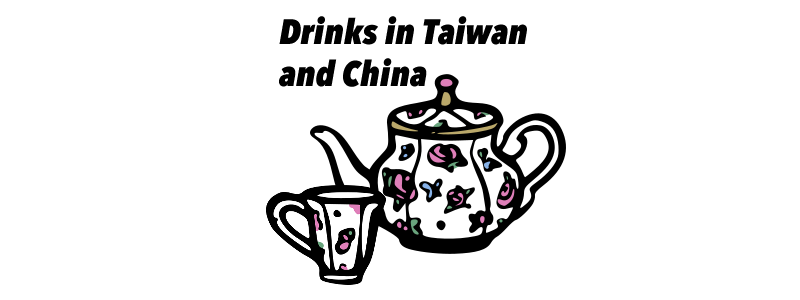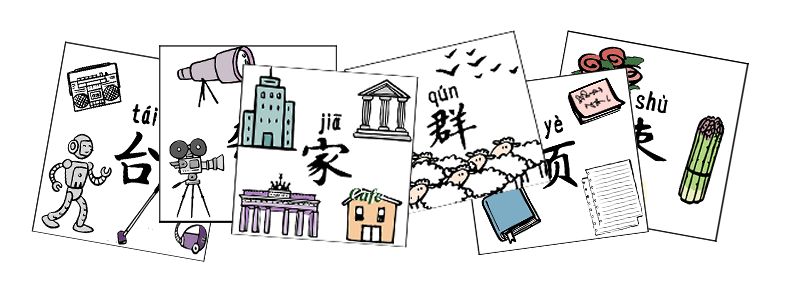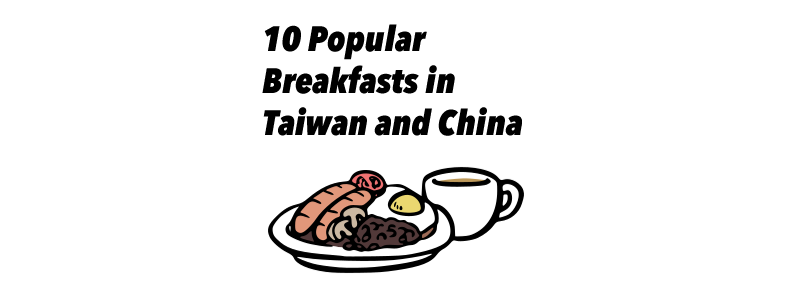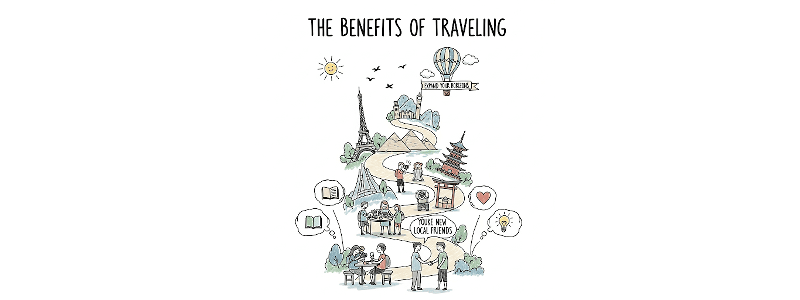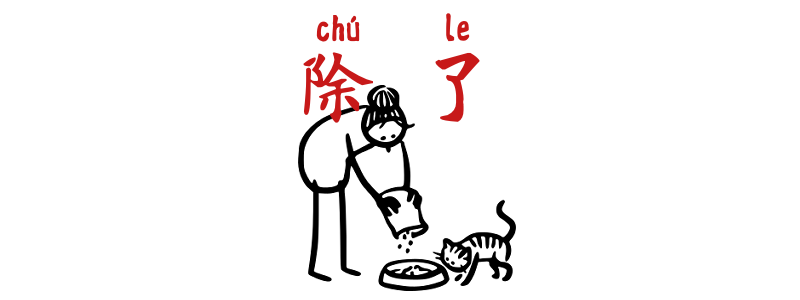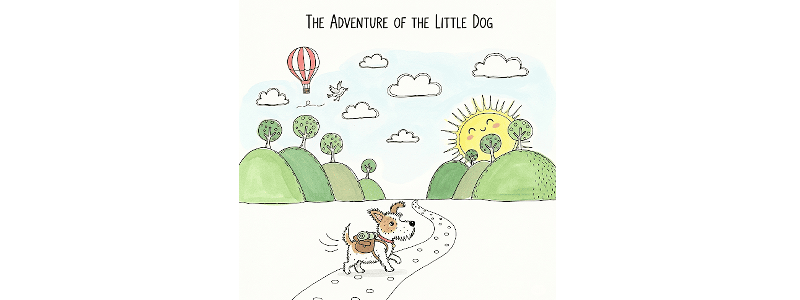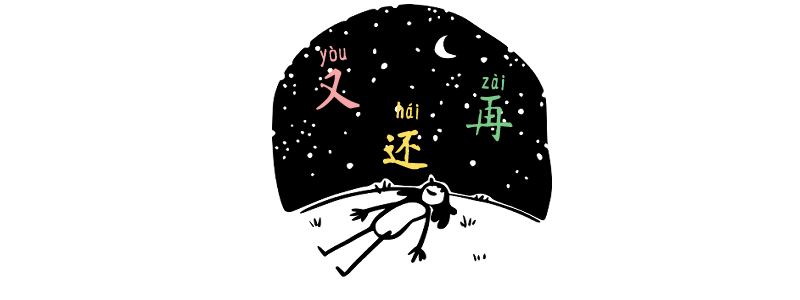Chinese adverbs of frequency are words that indicate how often an action occurs. Some common Chinese adverbs of frequency include: Structure Adverbs of Frequency + Verb It’s important to note that Chinese adverbs of frequency can appear before or after the verb they modify, but they generally appear before the adverbs of manner in a…
Author: tiffany
10 Drinks in Taiwan and China
Here are 10 drinks in Taiwan and China, some of them might be weird for you, but I still recommend you try them at least once. 1. Bubble Milk Tea (珍珠奶茶 zhēnzhū nǎichá) Bubble tea, also known as boba tea, pearl milk tea, or simply boba, is a Taiwanese tea-based drink that has become popular…
Chinese Measure Words 3
Grammar Point:In this article, we are going to introduce the following Chinese measure words: 把 bǎ, 行 háng, 架 jià, 群 qún, 束 shù, 台 tái, 家 jiā, 頁页 yè 把 (bǎ) This is a measure word in Chinese that is used to indicate a group of objects or one certain object that can be held with one hand, such…
Chinese Noun
In this article, we are going to discuss the feature of Chinese nouns. – What is the difference between Chinese nouns and English nouns? – How to express plural in Chinese nouns? – Do Chinese nouns countable? Syllables of Chinese Noun Nouns in Chinese usually consist of one or two syllables. While a few may…
10 Popular Breakfasts in Taiwan and China
There are many kinds of breakfasts in Taiwan and China, and I will briefly introduce them here into ten categories 1. Congee (粥 zhōu) Congee, also known as rice porridge, is a common breakfast in Taiwan and China. It is made by cooking rice with a large amount of water until it turns into a…
HSK4 Reading Practice – The Benefits Of Traveling
HSK4 Reading Practice Remember to use the menu at the top right of the article to switch between Traditional and Simplified Chinese. Vocabulary 經驗jīngyàn经验jīngyànexperience 他tā有yǒu很hěn多duō工作gōngzuò經驗jīngyàn他tā有yǒu很hěn多duō工作gōngzuò经验jīngyànHe has a lot of work experience. 習俗xísú习俗xísúcustom, tradition 中國Zhōngguó的de春節chūnjié有yǒu很hěn多duō傳統cháitǒng習俗xísú中国Zhōngguó的de春节chūnjié有yǒu很hěn多duō传统cháitǒng习俗xísúThere are many traditional customs in Spring Festival. 增強zēngqiáng增强zēngqiángstrengthen 運動yùndòng可以kěyǐ增強zēngqiáng你nǐ的de身體shēntǐ运动yùndòng可以kěyǐ增强zēngqiáng你nǐ的de身体shēntǐExercise can strengthen your body. 方式fāngshì方式fāngshì way, pattern, style 每個人měigerén都dōu有yǒu自己zìjǐ的de學習xuéxí方式fāngshì每个人měigerén都dōu有yǒu自己zìjǐ的de学习xuéxí方式fāngshìEveryone has their own…
Except and Besides in Chinese
Grammar Point除了 chúle is a commonly used conjunction in Chinese that means “besides” or “except for.” It is often used to introduce additional information or to exclude something or someone from a group or list. And it can take a noun phrase or a verb phrase as its object. Structure – Besides S + 除了⋯…
HSK3 Reading Practice – The Adventure of the Little Dog
HSK3 Reading Practice Remember to use the menu at the top right of the article to switch between Traditional and Simplified Chinese. Vocabulary 探險tànxiǎn探险tànxiǎnadventure, explore 小朋友xiǎopéngyǒu喜歡xǐhuān在zài森林sēnlín裡lǐ探險tànxiǎn小朋友xiǎopéngyou喜欢xǐhuan在zài森林sēnlín里lǐ探险tànxiǎnChildren like to go on adventures in the forest. 迷路mílù迷路mílùget lost 他tā迷路mílù了le, 不bù知道zhīdào怎麼zěnme回家huíjiā他tā迷路mílù了le, 不bù知道zhīdào怎么zěnme回家huíjiāHe got lost and didn’t know how to get home. 緊張jǐnzhāng紧张jǐnzhāngnervous 她tā第一次dìyīcì表演biǎoyǎn很hěn緊張jǐnzhāng她tā第一次dìyīcì表演biǎoyǎn很hěn紧张jǐnzhāngShe was very nervous for her…
Synonyms of “Again” in Chinese
The three words 再 zài, 又 yòu, and 還还 hái indicate the repetition of the same action and can be translated to “again” in English. However, 又 yòu is used when the repeated action has happened again and there is often a 了le at the end of the sentence. In contrast, 再 zài is used…
HSK2 Reading Practice – Shēngrì Kuàilè
HSK2 Reading Practice Remember to use the menu at the top right of the article to switch between Traditional and Simplified Chinese. Article – 生日快樂乐 今天是小明的生日,他邀請了他的好朋友們來參加生日派對。派對上有許多好吃的食物和飲料,還有生日蛋糕和氣球。小明非常開心,因為他可以和朋友們一起玩耍和享受美食。今天是小明的生日,他邀请了他的好朋友们来参加生日派对。派对上有许多好吃的食物和饮料,还有生日蛋糕和气球。小明非常开心,因为他可以和朋友们一起玩耍和享受美食。 他們一起玩了很多遊戲,像是跳繩、踢足球和玩捉迷藏。大家都非常開心,笑聲不斷。到了晚上,他們還看了一部有趣的電影,小明的媽媽為他們準備了很多爆米花。他们一起玩了很多游戏,像是跳绳、踢足球和玩捉迷藏。大家都非常开心,笑声不断。到了晚上,他们还看了一部有趣的电影,小明的妈妈为他们准备了很多爆米花。 當派對快結束的時候,小明收到了一份來自祖父母的禮物。禮物是一本關於動物的書,小明非常興奮,因為他一直對動物很感興趣。他決定明天就開始看這本書。当派对快结束的时候,小明收到了一份来自祖父母的礼物。礼物是一本关于动物的书,小明非常兴奋,因为他一直对动物很感兴趣。他决定明天就开始看这本书。 Questions Shēngrì kuàilè Jīntiān shì Xiǎomíng de shēngrì, tā yāoqǐngle tā de hǎo péngyǒumen lái cānjiā shēngrì pàiduì. Pàiduì shàng yǒu xǔduō hǎochīde shíwù hé yǐnliào, háiyǒu…

